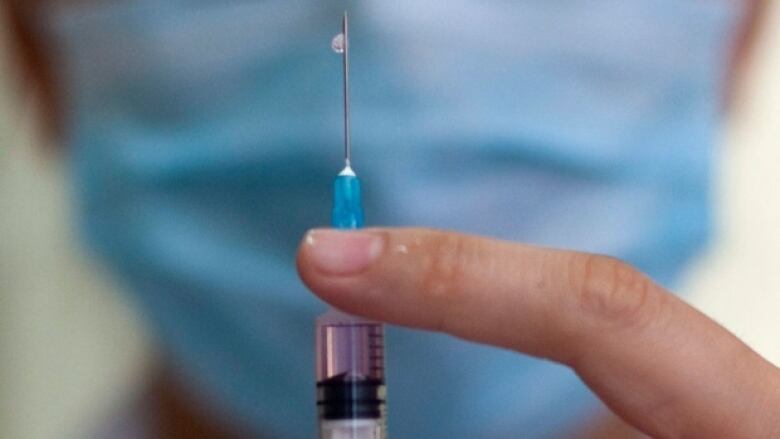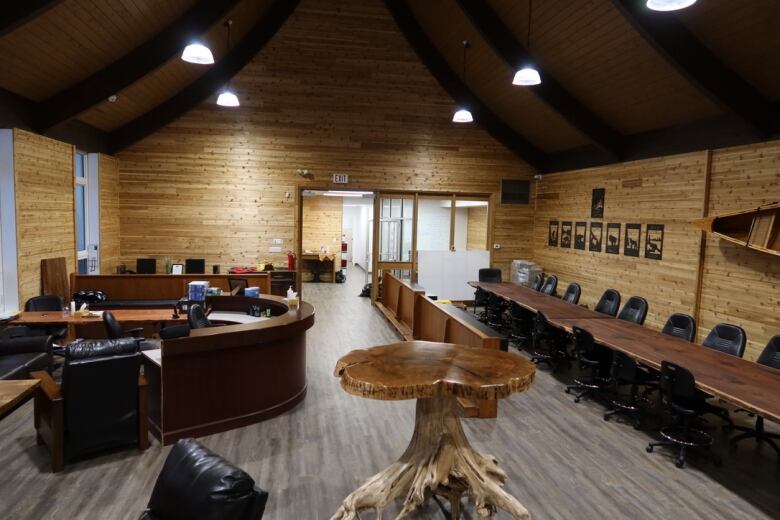Vaccine distribution plans still underway for Waterloo region's urban Indigenous community
Organizers say vaccine rollout needs to be done in a culturally relevant way

As residents over 80 gear up to get vaccinated, the plans to vaccinate Waterloo region's urban Indigenous population are still currently being developed.
But those involved say that's because it needed to be done in the most culturally relevant way possible.
Tammy Webster, a member of the Indigenous vaccination rollout task force and a K-12 Indigenous support teacher, and says there has been a collaboration between the region's vaccine task force and local Indigenous organizations.
Webster was recruited to provide an Indigenous voice and there's a working group that has a partnership with the Region of Waterloo to create an Indigenous specific rollout.
"There's a lot of issues, historical issues, that impact the Indigenous population uptake with vaccines," Webster said. "It's that vaccine hesitancy piece and so we've been doing a lot of awareness building."
Webster says to help educate and build trust for the vaccine so Indigenous people can make an informed decision, they've taken on a lot of the best practices already made available and are compiling them together in a package.
They then will send them out to the public through community networks, community groups, social mediaand word of mouth.
Culturally safe space important
While building trust and making sure Indigenous people are making an informed decision is vital, the actual vaccination space itself is also important.
Stephen Jackson, CEO of Anishnabeg Outreach Employment and Training, says there are plans for their space to be the site of vaccinations for urban Indigenous folksand they want to make sure people will feel welcome and comfortable.

"It's very important to have culturally safe spaces for Indigenous people based on the history and the traumas, and I guess, really, atrocities that have happened to Indigenous people throughout history. And we have to overcome that," said Jackson.
"There'shuge fear for health-care systems, for police systems, for school systems, so to create a space where people want to come, it's incredibly important."
Jackson says Anishnabeg Outreach will have elders on site as part of their process, along with traditional medicines throughout the building, including cedar tea andthe option to smudge.
More details to come
Even though plans are still being fleshed out, both Jackson and Webster say the decision to have Indigenous people lead the rollout has been very important and powerful.
They say the region has been great at letting them lead the way they want and have made a conscious effort to work on past oppressive practices.
"We know our systems function, but from the educational piece of it, we've had to educate region staff ... sometimes their systems don't work well enough for us," said Webster.
And Jackson agrees.
"[Having] Indigenous voices enables us to get out to the community and reach them and engage with them and deal with any concerns they have on a personal basis," said Jackson.
Jackson also mentioned that having that partnership and having Indigenous people lead actually helps the region reach more people.
"There's huge trust for Indigenous-led organizations like ours and as a consequence, that partnership enables us to deliver things that non-Indigenous [organizations] would never be able to deliver."
Jackson and Webster say they expect that in the coming weeks, there will be more details and information on where and when Indigenous people in the region can get vaccinated.












_(720p).jpg)


 OFFICIAL HD MUSIC VIDEO.jpg)
.jpg)



























































































